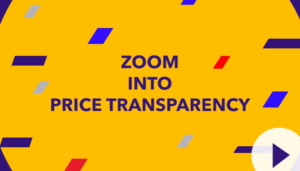
Kaitlin Howard is a researcher and writer producing insightful content across the healthcare revenue cycle. She has written and produced content for Zelis, Waystar, and Recondo Technology, as well as agencies. With a B.A. in English and Writing from University of Denver, Kaitlin stays current on market updates on claims management and healthcare payments, publishing a regular educational blog series on industry trends and Zelis offerings.
Within the last year, Congress and the Departments of Treasury, Labor, and Health and Human Services have issued a bevy of new rules that aim to improve health care cost transparency and encourage consumer engagement. Many of these new requirements have already taken effect or will soon go into effect for the 2022 plan year. With the rollout of the No Surprises Act (NSA), new requirements for member ID cards and Advanced Explanation of Benefits (AEOB) communications have also been introduced.
Member ID Requirements
For plan years beginning January 2022 or later, NSA now requires that member ID cards (both electronic and print) include the following:
- In-network (INN) deductible
- Out-of-network (OON) deductible
- Out-of-pocket maximum limit
- Telephone number for member assistance
- Website URL for member assistance
- Information on where to find INN providers
To summarize: An ID card (paper or electronic) must be provided to plan participants with any deductible and out-of-pocket maximums applicable to their plan, as well as a phone number and website where they can seek consumer assistance information.
Advanced EOB (AEOB) Requirements
NSA has also introduced a requirement for AEOBs (applicable to all services, in- and out-of-network, by providers and facilities). AEOBs must be provided whenever an appointment is made for services and also whenever requested by the member, even without an appointment.
For every scheduled service and upon member request, the payer must provide the member with an AEOB that includes:
- Whether the provider or facility is a participating provider (INN), and the contracted rate for the item or service
- If the provider or facility is OON, description on how to find information on INN providers
- Good faith estimates for each of the following:
- Provider billed charges (sent by the provider)
- Amount the payer is responsible for paying
- Member’s cost-share responsibility
- Amount the member has incurred toward meeting deductibles and OOP maximums
- A disclaimer that coverage is subject to medical management, if applicable
- Any other applicable information or disclaimer
To summarize: Providers must ask patients whether they are enrolled in a group health plan and, if so, provide an estimate of the expected charges to the patient’s insurer. After receiving the estimate, plans must provide an advanced EOB to the plan participant that informs them whether the provider/facility is in-network, of what the plan will pay, and any cost-sharing requirements.
How Zelis Can Help
Here at Zelis, we’re adapting our ID card communications to deliver NSA-ready cards on behalf of clients by designing templates to each payer’s compliance specifications and the required fields as detailed above.
Using client-provided data, we work with payers to create NSA-ready templates for AEOBs (in both print and digital format), while supporting increased EOB/AEOB volume and distinguishing between pre-service estimates and claims for received care.
Moreover, Zelis helps clients leverage AEOBs for strategic pre-service communication to members through:
- Custom messaging or inserts
- Steerage to INN providers
- Promotion of educational resources and wellness programs
The Wrap Up
The No Surprises Act impacts all healthcare organizations, from large health plans and systems to small medical offices and individual providers. As such, leaders across the healthcare industry must directly understand the details of the legislation prior to implementation or have a trusted advisor with legislative expertise who can guide them to appropriate solutions.
From the patient-facing Advanced Explanation of Benefits through to adjudication, arbitration, and settlement, alignment with the NSA requirements will require organizations to adapt internal capabilities or outsource solutions or find some combination of the two. Companies may have to alter their infrastructure and processes to administer all aspects of the law.
And providing accurate Advanced Explanation of Benefits (AEOBs) to member-patients and meeting the tight post-service timeline in which providers and insurers must complete adjudication, remediation, and arbitration may end up becoming the most challenging areas for organizations to tackle, particularly for substantial claims.
To further explore getting started with NSA compliance, reach out to your Zelis representative or contact us here.
For access to additional information, visit our No Surprises Act Information Hub.



